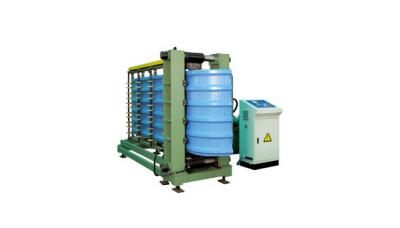Precautions of Using Rock Wool in Rock Wool Production Lines
Rock wool is a common insulation material often used in construction and industrial fields. Rock wool has good insulating properties and fire resistance, and is widely used in various building structures and equipment. However, some precautions need to be taken when using rock wool to ensure its safe and effective use.
Rock Wool Production Lines: Pay Attention to the Safety of Workers During the Installation of Rock Wool
Because the surface of rock wool has fine fibers, inhaling or contacting rock wool can have certain health effects on workers. Therefore, special protective equipment such as masks, gloves, and goggles should be provided at the construction site to protect workers' respiratory systems and skin from the irritation of rock wool.
Rock Wool Production Lines: Prevent Rock Wool from Getting Wet During Use
Wet rock wool will reduce its insulating and fire resistance properties, and may even cause mold growth or metal component corrosion. Therefore, when storing and using rock wool, avoid contact with water sources such as rainwater and groundwater, and choose dry, ventilated places to store rock wool to ensure its quality is not affected.
Rock Wool Production Lines: Take Care to Avoid Damage When Installing and Fixing Rock Wool
Rock wool material itself is relatively fragile and easily broken and generates debris. Therefore, during construction and installation, operate carefully and avoid using excessive force and sharp tools to prevent damage to the rock wool material.
Rock Wool Production Lines: Prevent Dust Generation During the Use of Rock Wool
The fiber material on the surface of rock wool can easily generate fine particulate dust, which can cause health damage if inhaled. Therefore, when using rock wool on rock wool production lines, try to minimize friction and impact on its surface to avoid generating dust.
Rock Wool Production Lines: Avoid Environmental Pollution When Handling and Cleaning Rock Wool
The fibers on the surface of rock wool have some dust-emitting properties, and if they disperse into the environment, they can affect air quality. Therefore, when handling and cleaning rock wool, take appropriate measures such as wet mopping or vacuuming to avoid environmental pollution.
Rock Wool Production Lines: Proper Treatment and Disposal of Rock Wool That Is No Longer in Use
If rock wool material is no longer in use, take appropriate treatment measures such as packaging and transporting it to designated treatment sites to ensure its impact on the environment and human health is minimized.
In summary, the use of rock wool requires attention to worker safety, prevention of moisture, avoiding damage and dust generation, avoiding environmental pollution, and proper treatment and disposal of discarded rock wool material. Only by strictly adhering to these precautions can the rock wool boards produced on rock wool production lines be safely and effectively applied in construction and industrial fields, and exert their excellent insulation and fire resistance properties.


 CN
CN
 EN
EN
 fr
fr  de
de  es
es  it
it  ru
ru  pt
pt  ar
ar  th
th  pl
pl  ro
ro 







 Call us on:
Call us on:  Email Us:
Email Us:  #1809, Jianhu Rd, Keqiao, Shaoxing, Zhejiang, China
#1809, Jianhu Rd, Keqiao, Shaoxing, Zhejiang, China 